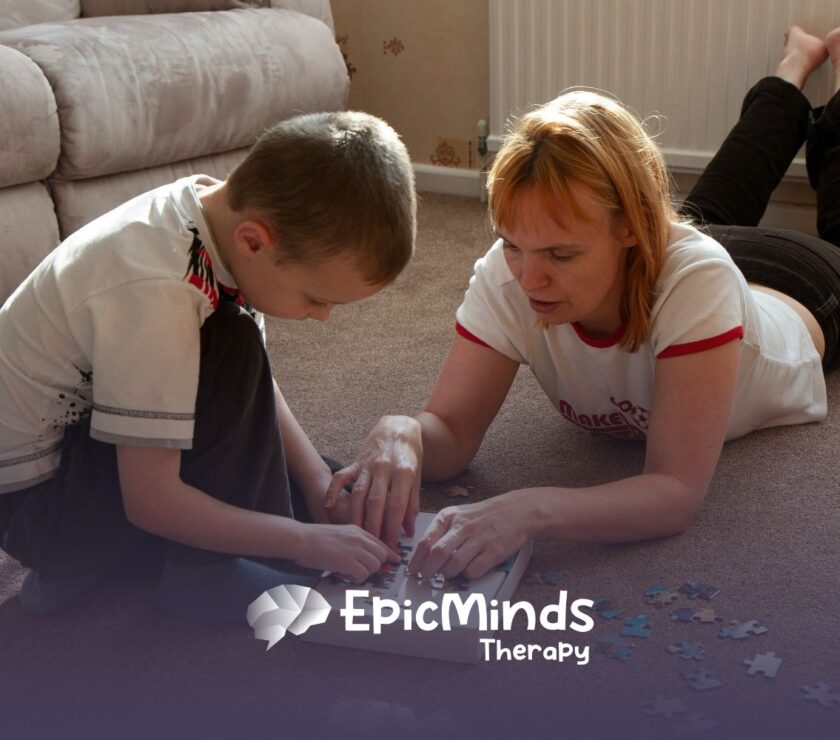You might have heard people say that individuals with autism are often “geniuses” or have unusually high IQs. But is that really true? The connection between autism and intelligence is more complex than it sounds — and it’s one that researchers have been studying for years.
Let’s take a closer look at what science actually says about whether a high IQ is linked to autism.
Autism and IQ: What’s the Relationship?
Autism Spectrum Disorder (ASD) affects how people communicate, process information, and experience the world around them. But intelligence levels among individuals with autism vary widely — just like in the general population.
Some people with autism have average or above-average IQs, while others may have intellectual disabilities. Studies suggest that around 44% of individuals with autism have an average or higher IQ, compared to earlier assumptions that most were below average.
In other words: autism doesn’t determine IQ, and IQ doesn’t define autism.
Why the “High IQ and Autism” Link Exists
There’s a reason the idea of a connection between high IQ and autism persists. Some individuals with autism display exceptional abilities in specific areas, such as:
- Mathematics and pattern recognition
- Memory and detail recall
- Music, art, or visual thinking
- Logic and analytical problem-solving
This is sometimes called a “spiky profile” — meaning strengths in certain cognitive areas, even if other skills (like social communication) are more challenging.
So while not everyone with autism has a high IQ, unique strengths and ways of thinking are common — and they’re worth celebrating.
How IQ Tests Can Be Misleading
Standard IQ tests don’t always capture the full picture of intelligence, especially for people with autism. Communication difficulties, anxiety, or sensory overload can affect test results. That’s why many professionals now use broader developmental and cognitive assessments to understand how a child learns and thinks.
Supporting Every Type of Mind
Whether a child has a high IQ, an average IQ, or developmental delays, the goal is always the same — helping them reach their full potential.
That’s where Epic Minds Therapy can help. Our compassionate team provides evidence-based autism support through:
- In-home ABA therapy — personalized sessions that focus on learning, behavior, and independence.
- School-based ABA — helping children apply skills in social and academic settings.
Families across North Carolina trust Epic Minds Therapy to help children build confidence, focus, and everyday life skills — no matter where they fall on the spectrum.
Ready to support your child’s growth? Contact us today to learn how their ABA therapy can help your child thrive.
FAQs
Is autism linked to higher intelligence?
Not necessarily. While some individuals with autism have above-average IQs, others may have average or below-average intelligence. Autism and IQ are separate traits.
Why do some people with autism excel in certain areas?
Many autistic individuals have strong abilities in specific areas like memory, math, or pattern recognition — often linked to how their brains process information.
Can ABA therapy support children with high IQs?
Yes. ABA therapy can be tailored to each child’s learning style and abilities, helping them build social, emotional, and academic skills effectively.
Sources:
- https://pmc.ncbi.nlm.nih.gov/articles/PMC9058071/
- https://pmc.ncbi.nlm.nih.gov/articles/PMC4927579/
- https://www.kcl.ac.uk/archive/news/ioppn/records/2018/march/high-iq-autistic-people-learn-social-skills-at-a-price
- https://www.appliedbehavioranalysisedu.org/is-autism-associated-with-higher-intelligence/
- https://www.frontiersin.org/journals/psychiatry/articles/10.3389/fpsyt.2022.856084/full




